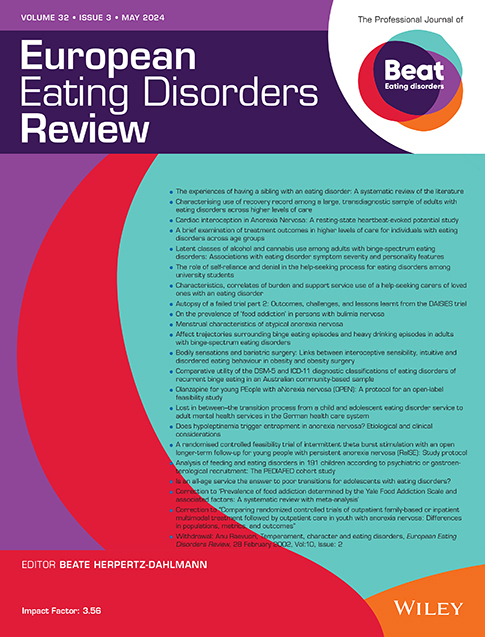Social cognition and bulimic symptoms in male undergraduate students: The conditional effect of emotion dysregulation
Abstract
Objective
Research demonstrates associations between poor social cognition and eating disorder (ED) pathology. Moreover, research shows that individuals with EDs struggle with emotion regulation. The present study replicates and extends the literature on social cognition and ED pathology, which previously focused largely on symptoms of anorexia nervosa among women while the present study focuses on symptoms of bulimia nervosa among undergraduate men. Further, this study tests the hypothesis that better emotion regulation mitigates the association between social cognition and ED pathology.
Methods
At a single timepoint, undergraduate males (n = 520) completed a series of questionnaires, and a task assessing mentalising, a key element of social cognition.
Results
Consistent with hypotheses, bulimic symptoms were associated with worse mentalising and worse self-reported emotion regulation. Moreover, the association between mentalising and bulimic symptomatology was conditional on emotion regulation, such that it was strongest among those with more difficulties regulating their emotions.
Conclusion
Results are consistent with existing theories that highlight an interplay between interpersonal (e.g., mentalisation) and intrapersonal (e.g., affective functioning) factors in relation to ED symptomatology. Among undergraduate males, bulimic symptoms were associated with worse mentalisation. However, a good ability to regulate emotions interrupted this association.

 求助内容:
求助内容: 应助结果提醒方式:
应助结果提醒方式:


